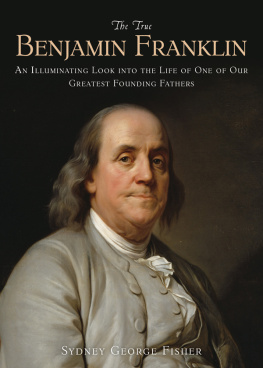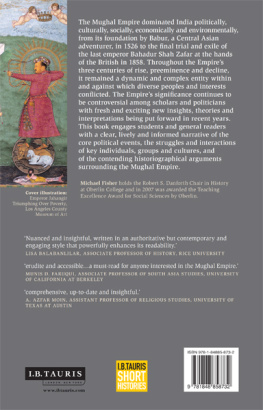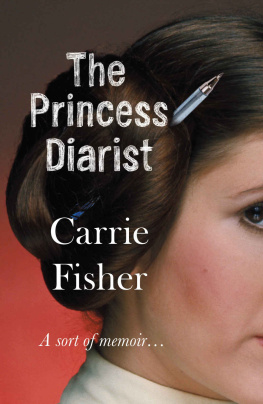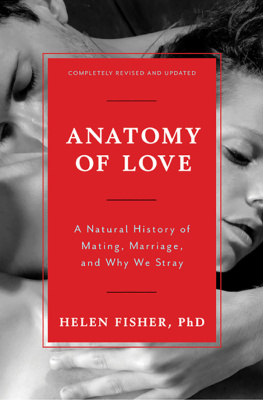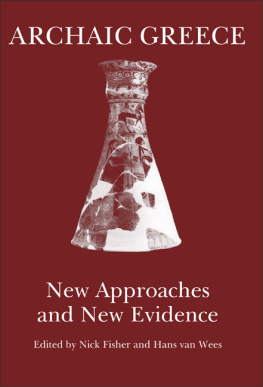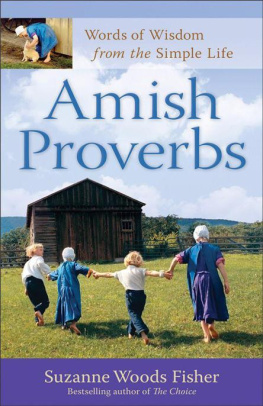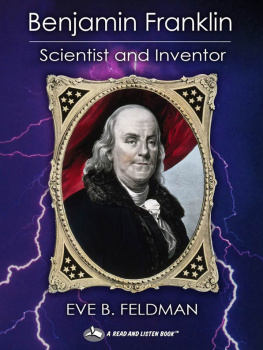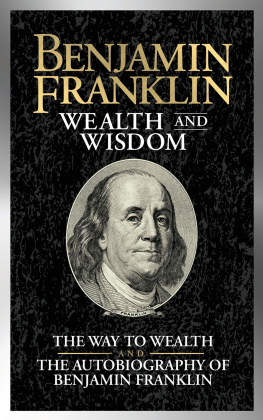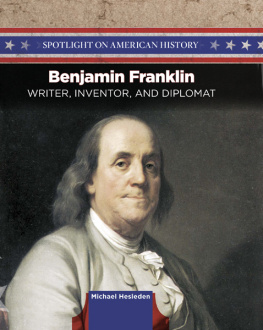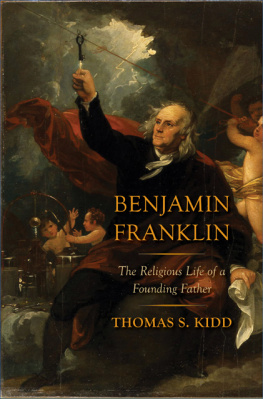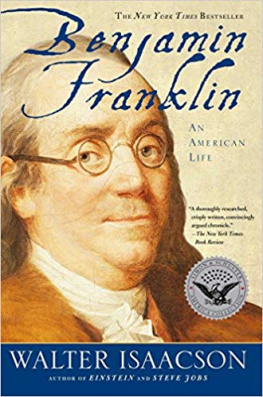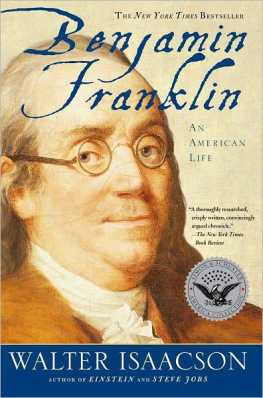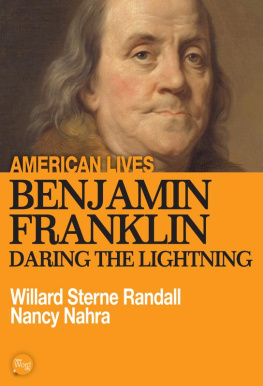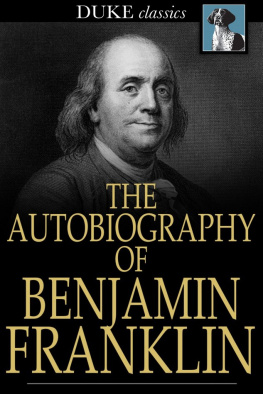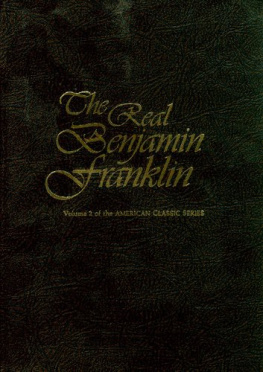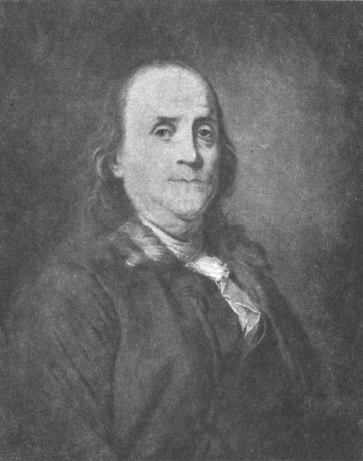
THE DUPLESSIS PORTRAIT OF FRANKLIN
Copyright 1898 by Sydney George Fisher
First Skyhorse Edition 2014
All rights reserved. No part of this book may be reproduced in any manner without the express written consent of the publisher, except in the case of brief excerpts in critical reviews or articles. All inquiries should be addressed to Skyhorse Publishing, 307 West 36th Street, 11th Floor, New York, NY 10018.
Skyhorse Publishing books may be purchased in bulk at special discounts for sales promotion, corporate gifts, fund-raising, or educational purposes. Special editions can also be created to specifications. For details, contact the Special Sales Department, Skyhorse Publishing, 307 West 36th Street, 11th Floor, New York, NY 10018 or .
Skyhorse and Skyhorse Publishing are registered trademarks of Skyhorse Publishing, Inc., a Delaware corporation.
Visit our website at www.skyhorsepublishing.com.
10 9 8 7 6 5 4 3 2 1
Library of Congress Cataloging-in-Publication Data is available on file.
Cover design by Danielle Ceccolini
Print ISBN: 978-1-62914-403-0
Ebook ISBN: 978-1-63220-158-4
Printed in the United States of America
Preface
T HIS analysis of the life and character of Franklin has in view a similar object to that of the volume entitled The True George Washington, which was prepared for the publishers by Mr. Paul Leicester Ford and issued a year or two ago.
Washington sadly needed to be humanized, to be rescued from the myth-making process which had been destroying all that was lovable in his character and turning him into a mere bundle of abstract qualities which it was piously supposed would be wholesome examples for the American people. This assumption that our people are children who must not be told the eternal truths of human nature, but deceived into goodness by wooden heroes and lay figures, seems, fortunately, to be passing away, and in a few years it will be a strange phase to look back upon.
So thorough and systematic has been the expurgating during the last century that some of its details are very curious. It is astonishing how easily an otherwise respectable editor or biographer can get himself into a state of complete intellectual dishonesty. It is interesting to follow one of these literary criminals and see the minute care with which he manufactures an entirely new and imaginary being out of the real man who has been placed in his hands. He will not allow his victim to say even a single word which he considers unbecoming. The story is told that Washington wrote in one of his letters that a certain movement of the enemy would not amount to a flea-bite; but one of his editors struck out the passage as unfit to be printed. He thought, I suppose, that Washington could not take care of his own dignity.
Franklin in his Autobiography tells us that when working as a journeyman printer in London he drank nothing but water, and his fellow-workmen, in consequence, called him the Water-American; but Weems in his version of the Autobiography makes him say that they called him the American Aquatic, an expression which the vile taste of that time was pleased to consider elegant diction. In the same way Temple Franklin made alterations in his grandfathers writings, changing their vigorous Anglo-Saxon into stilted Latin phrases.
It is curious that American myth-making is so unlike the ancient myth-making which as time went on made its gods and goddesses more and more human with mortal loves and passions. Our process is just the reverse. Out of a man who actually lived among us and of whose life we have many truthful details we make an impossible abstraction of idealized virtues. It may be said that this could never happen among a people of strong artistic instincts, and we have certainly in our conceptions of art been theatrical and imitative rather than dramatic and real. Possibly the check which is being given to our peculiar myth-making is a favorable sign for our art.
The myth-makers could not work with Franklin in quite the same way that they worked with Washington. With Washington they ignored his personal traits and habits, building him up into a cold military and political wonder. But Franklins human side would not down so easily. The human in him was so interlaced with the divine that the one dragged the other into light His dramatic and artistic sense was very strong, far stronger than in most distinguished Americans; and he made so many plain statements about his own shortcomings, and followed pleasure and natural instincts so sympathetically, broadly, and openly, that the efforts to prepare him for exhibition are usually ludicrous failures.
But the eulogists soon found an effective way to handle him. Although they could ignore certain phases of his character only so far as the genial old fellow would let them, they could exaggerate the other phases to an almost unlimited extent; for his career was in many ways peculiarly open to exaggeration. It was longer, more varied, and more full of controversy than Washingtons. Washington was twenty-six years younger than Franklin and died at the age of sixty-seven, while Franklin lived to be eighty-four. Washingtons important public life was all covered by the twenty-two years from 1775 to 1797, and during more than three of those years he was in retirement at Mount Vernon. But Franklin was an active politician, philosopher, man of science, author, philanthropist, reformer, and diplomat for the forty-odd years from 1745 to 1788.
Almost every event of his life has been distorted until, from the great and accomplished man he really was, he has been magnified into an impossible prodigy. Almost everything he wrote about in science has been put down as a discovery. His wonderful ability in expressing himself has assisted in this; for if ten men wrote on a subject and Franklin was one of them, his statement is the one most likely to be preserved, because the others, being inferior in language, are soon forgotten and lost.
Every scrap of paper he wrote upon is now considered a precious relic and a great deal of it is printed, so that statements which were but memoranda or merely his way of formulating other mens knowledge for his own convenience or for the sake of writing a pleasant letter to a friend, are given undue importance. Indeed, when we read one of these letters or memoranda it is so clearly and beautifully expressed and put in such a captivating form that, as the editor craftily forbears to comment on it, we instinctively conclude that it must have been a gift of new knowledge to mankind.
The persistency with which people have tried to magnify Franklin is curiously shown in the peculiar way in which James Logans translation of Ciceros essay on old age was attributed to him. This translation with notes and a preface was made by Logan and printed in 1744 by Franklin in his Philadelphia printing-office, and at the foot of the title-page Franklins name appeared as the printer. In 1778 the book was reprinted in London, with Franklins name on the title-page as the translator. In 1809 one of his editors, William Duane, actually had this translation printed in his edition of Franklins works. The editor was afterwards accused of having done this with full knowledge that the translation had not been made by Franklin; but, under the code of literary morals which has so long prevailed, I suppose he would be held excusable.

